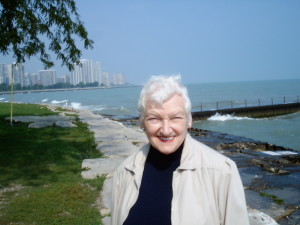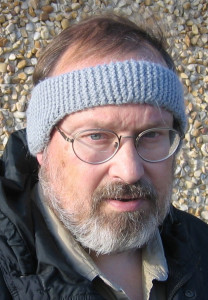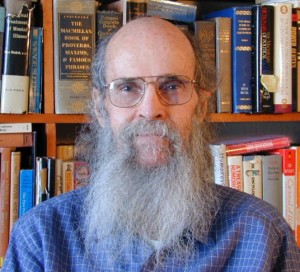
Here is quite the confluence:
Martin Ramirez was a psychiatric survivor who was labeled schizophrenic, and he has a stamp because of his celebrated art. You can read about his story here.
Thank You Suzanne Denker for bringing this to my attention.
Psychiatric survivor, physical disability activist against climate crisis


Here is quite the confluence:
Martin Ramirez was a psychiatric survivor who was labeled schizophrenic, and he has a stamp because of his celebrated art. You can read about his story here.
Thank You Suzanne Denker for bringing this to my attention.
My friend, activist David Zupan, wrote the below about our protest inside the Eugene area Chamber of Commerce, or the “Chamber of Silence” as our banner calls them. For several years we have asked our local chamber to say that the US Chamber does not speak for any of us about the denial of climate crisis. Unfortunately, Eugene’s Chamber has refused to say anything about global warming.
So, a few of us showed up inside the office for the Eugene Chamber when they held one of their regular luncheon meetings to try to get new members. We asked pointed questions and a couple of videographers, including David Zupan, captured our action. The national, well-respected climate crisis activist group 350 has called for us all in the USA to ask our local chambers to speak out. My impression is that the response from local chambers has been so frosty that activists have moved on to other, more-winnable campaigns, but we are tenacious, we psychiatric survivors, plus it is a good practice in loving our opponents when we surface opponents in reality, not just theoretically.
Okay, let us turn over the rest of this blog entry to David Zupan, his news and the video that he and Jana Thrift took, thanks David and Jana!
By David Zupan
In this four-minute video, local residents peacefully protest at a March 5, 2015 Eugene Area Chamber of Commerce meeting. They question the US Chamber of Commerce policy of denying global warming and demand that the local chapter state that the national does not speak for them on this urgent issue.
So far 56 Chamber of Commerce chapters have taken such action. Jana Thrift and I were both told to stop filming the event. I was grabbed and pulled toward the exit at one point which activist David Oaks stopped by saying “Don’t touch, don’t touch, we’re leaving.” Outside David Oaks and others talked with a Chamber rep who suggested a proposal could be submitted for review by the chamber at a later date:
Here is a 44-minute rough cut video of the same event:
For more info about our campaign for years to encourage the Eugene Area Chamber of Commerce to speak out about the climate crisis, their refusal and what you can do see our landing page about the worst case scenario for global warming:
 This past Thursday, we got some very sad news, that my Mother died at the age of 97. Eleven years ago, I helped move my Mom from her Chicago home to here in Eugene, where she lived in an active retirement center. I helped take care of her, but after my bad fall, my brother and my wife have done so much to help take care of my wonderful Mom, who has always been so loving, ethical, upbeat, helpful.
This past Thursday, we got some very sad news, that my Mother died at the age of 97. Eleven years ago, I helped move my Mom from her Chicago home to here in Eugene, where she lived in an active retirement center. I helped take care of her, but after my bad fall, my brother and my wife have done so much to help take care of my wonderful Mom, who has always been so loving, ethical, upbeat, helpful.
Below is an obituary prepared by my family:
Beloved sister, wife, mother, grandmother and aunt Violet Elizabeth Oaks (née Stonis) passed away on March 19, 2015, at 97 years of age.
Born in Rockford, Illinois on March 29, 1917, Violet is preceded in death by parents Anton and Mary (Armin) Stonis; and by brothers Vito, Algert, and Albert. She is survived by sister Nancy Corcoran of Des Plaines, Illinois.
Violet was a resident of Chicago, Illinois for nearly eight decades before relocating to Eugene, Oregon in 2009. It was there on Chicago’s South Side that she married her late husband, Anthony T. Oaks and raised her two surviving sons Anthony Oaks of Houston, Texas and David Oaks of Eugene, Oregon. Violet was also a cherished mother-in-law to Charlene Paulus Oaks and Debra Nuñez as well as grandmother to Sarah, Anthony, John, and Eleanor Oaks.
Violet will be remembered for her brilliance and meticulousness, as well as her lifelong appreciation of her Lithuanian heritage, angel and bluebird tchotchkes, crossword puzzles, pinochle, travel, good food and drink, and, true to her name, flowers.
A celebration of life will take place at the 2nd floor lounge of the Eugene Hotel (222 E. Broadway, Eugene, OR, 97401) at 2 p.m. on March 28, 2015. A memorial and burial will follow in Chicago at the Lithuanian National Cemetery with details to be announced at a later date.
In lieu of flowers, the family asks that donations be made towards the care of son, David. Checks can be sent directly to: David W. Oaks Irrevocable Trust, c/o Chase Bank, 1100 Willamette St., Eugene, OR, 97401.
Please visit and post your memory at this online memorial site created by our family:
From activist Sue Barnhart:
Download a poster about below event here: shy persons poster ’15 1C
Please come to the 22nd annual Shy Person’s Talent Show on Saturday, April 11th, 2015 at Sam Bond’s Garage from 5 to 8 pm. Sliding Scale $5 to $500 to raise money for two wonderful local causes, David Oaks and Occupy Medical. Come early to socialize, buy some yummy food, order a drink of your choice and get a good seat. We are both the audience and the show so let’s pack the joint and enjoy some good times together. To secure a place on stage over walk ins email shypersonstalent@gmail.com
Occupy Medical believes that the only way to make a change in healthcare is by offering a model of the change we want to see. Occupy Medical has been running as a weekly clinic since February of 2012.The staff and services have evolved to match the needs of the community. Join them at 8th and Oak every Sunday from 12-4pm.
You may not have the answer to this puzzle, but you may be able to forward this accessibility question to someone who might network this with an expert who has the answer.
For about 40 years I have worked for human rights of people who are considered disabled, mainly mental health. About two years ago, I had a major fall and I am now a quad in a power chair. I have a few other disabilities as I will explain. My decades of activism and my current status as an extremely-disabled person teach me that I have to keep making a noise for my empowerment, or much of this society will ignore me.
My Accessibility Question
Two years ago, during my 10 weeks of rehab, one of the most difficult pieces was my communicating. The main expert in rehab meant well and was very skilled, but could not quite solve this.
Where can I find this particular type of equipment?
I need a very good microphone, the kind that reaches near my mouth and sits on my ear that you might see on a musician or a speaker in a TED Talk. This mic needs to be very powerful because my vocal cords are half-paralyzed and my speech is disabled.
This good mic needs to do three things, and ideally I would be able to easily toggle the mic between these three functions:
1. Accessing my iPhone. This mic would be able to connect to my iPhone so that I could send or receive cell phone calls, like a bluetooth with very good reception. Since I am a quad, there are some challenges with my hand reaching my ear to turn on such a bluetooth. However, my left hand can now reach up higher to my ear if I need to turn on an easy button on my bluetooth, or I can use a button on my chest to turn on a modified bluetooth.

2. Amplification. When I need to talk to someone with noise in the background, like when I am in my van, this microphone would be connected to a good portable amplifier. Currently, I use a portable amp that is very basic and a bit hard to hear, called the ChatterVox. While I appreciate what it has done for me, there must be better amps, with clearer output.
3. Computer. My pretty new and strong computer has a voice recognition program that many disabled people use to operate their system and change their speech to typing, called Dragon. But because my voice is so weak, I need a very good mic, or else such programs cannot understand me. The same thing applies to using Siri, Google voice recognition, etc.
Background: My Various Disabilities
Since about 1982, I have had a type arthritis that impacted my spine making it very difficult for me to turn my head. Called ankylosing spondylitis, I ended up with a fused spine for years and my doctor warned me that this is dangerous. Sure enough, as I tried to get my cat off a high loft, when I fell from the ladder, that was enough to break my neck.
Because of my pre-existing A.S., surgery had to be delayed for my back for about one month after my fall. During this delay, my lungs got strong enough for surgery but my vocal cords and my fingers became disabled. As someone who typed 110 words per minute, played improvisational piano for more than 50 years, and who has spoken in 14 countries, these extra disabilities have been daunting.
During rehab, the only thing that seemed to work for me to operate the computer was eye-scan technology, but this was a bit slow and exhausting. Therefore, I have utilized a human being to be my “mouse” the last two years for everything that I write. So I would much rather be able to operate the computer myself!
Can You Help Solve This Puzzle?
There you have it. For some phone calls I have used a basic Bluetooth device but the mic is pretty weak and this was only for calls. Then for talking to someone in front of me I have used another mic, but this has had a lot of distortion. Finally, for voice recognition on my computer, I have used a third microphone, but the quality has been low.
Four speech therapists have tried to help my quest for the correct technology, but have not been able to find the best devices, though we all suspect they are “out there.”
So can you point me to a device that could do all three functions? Maybe through my iPhone? Maybe Google Glass? Keeping in mind that I cannot move my head for that kind of signal?
If you would like to share your ideas you can post a comment here on my blog, or you can email me at davidwoaks@gmail.com or you can comment on my facebook page. As I said, even if you do not know the answer, maybe you can forward this question to someone who does know. Thanks for helping me make a noise!

All of my grandparents came from Lithuania so we wondered why my grandfather (on my mother’s side) wanted to name his first born with the Italian name Giordano. My 97-year-old mother told me this story a few years ago so I read up on my grandfather’s hero Giordano Bruno. By the way, my grandmother did not follow her husband’s wishes and my uncle was named after the famous Lithuanian Vytautas the Great. It turns out that Giordano Bruno is a very interesting historical figure, mainly making a name for himself by being the last heretic burnt at the stake by the Catholic church in 1600. Every year on this date 17th of February, this figure is remembered in Rome by his statue in a celebration of free thinking. I have read some of Bruno’s interesting writings about philosophy, nature, magic, and memory. Just using his intellect and logic he was able theorize that the stars up in the sky were just like our sun but of course were very far away. Not too shabby for a guy without a telescope. February 17th is also World Human Spirit Day. You may read more about Giordano and the annual celebration here: http://en.wikipedia.org/wiki/Giordano_Bruno

One of the most amazing activist campaigns I have been involved in during my 40 years of protest for human rights in the mental health system, was the effort to stop the involuntary electroshock of Ray Sandford of Minnesota.
Incredibly, back in 2008, he was getting forced shock every Wednesday morning on an outpatient basis. That is right, every week in his group home out in the community, he was picked up and brought to a local hospital for electroconvulsive therapy (ECT) through his brain, against his will, with a court order.
Ray reached MindFreedom in the Fall of 2008, and an international human rights campaign began for him.
Below, you will see an article by psychiatric survivor activist Loretta Wilson looking back on this action six years ago, which involved thousands of people speaking out together to help and support Ray. It took longer than I thought, but Ray won!
Loretta often talks on the telephone with Ray, and reports on his current needs. Today, as an oppressed person who lives in a group home, Ray should have a better life. Six years ago, his psychiatrist, guardian, lawyer, group home, and many other authorities worked together for his forced electroshock. It is to Ray’s credit that somehow he phoned us at the MindFreedom office and kicked off this historic movement victory.
Back then, Ray’s psychiatrist said that he had to have forced electroshock or he would not survive. Six years later we can now reliably say that this psychiatrist was wrong!
During his forced electroshock, I remember how a bunch of us flew in to Minnesota and reached a lot of people there about Ray. Thanks, Loretta, for keeping in touch with Ray and remembering this great victory.
Some activists dismiss electroshock as an issue for campaigns, because the vast majority of psychiatric treatment is of course with drugs. But as long as even one person is subject to forced electroshock, especially with involuntary outpatient commitment, we are all at risk. In an often-divided movement, opposing forced electroshock unites almost everybody, along with most people on the left and the right in the general public.
At this time, Congressperson Tim Murphy (R-PA) is pushing for his bill for far more involuntary outpatient procedures in the USA, and an attorney has confirmed with me that Rep. Murphy’s bill does not exclude forced electroshock in the community of people living peacefully at home. When the public discovers that his bill would allow more involuntary electroshock of peaceful, law-abiding citizens in their own homes, there will be general outrage. Talk about out-of-control big government over-reach! (more…)

Dear Leonard Roy Frank,
Wade Hudson, a long-time activist and one of your main collaborators and friends, announced that you had died suddenly either late Wednesday night, January 14, 2015, or early Thursday morning, and all of us in the Mad Movement have lost one of our most powerful champions.
Leonard, I always thought of you as one of the early, beat drop-outs, because you were going into the business world after your graduation from the Wharton School of Business in the 1954, but your spiritual journey brought you into conflict with this society. As part of your mystical experience you were one of the early Americans in that generation to renounce eating meat and dairy products, and of course you grew that big beard. In 1962, because of your cultural and religious rebellion, you experienced absolutely incredible psychiatric abuse, including both forced insulin coma shock therapy and electroshock therapy. Many times I have told the story about how your psychiatrist checked to see if you had shaved or deviated from your vegetarianism, and when you persevered he ordered more forced electroshock.